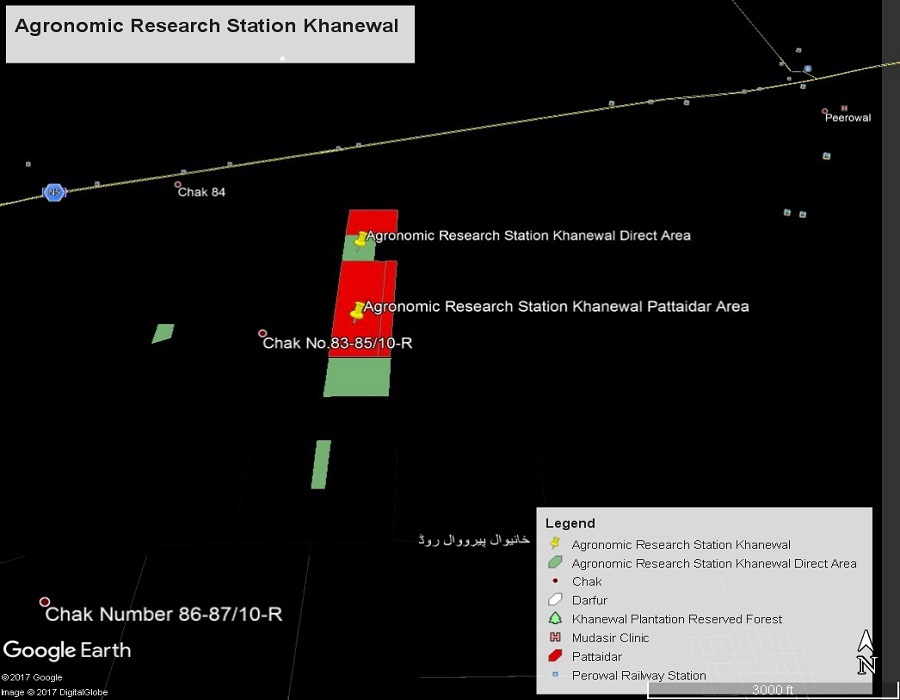Khanewal district is situated on Peshawar-Karachi main railway line and on national highway, it is surrounded by five districts, Multan, Jhang, Sahiwal, Vehari and Toba Tek Singh. Major part of its tehsils Kabirwala and Mian Channu are old settled areas along the banks of Ravi and Chenab. District Khanewal has fertile lands and it is also known for the wheat, cotton, sugar-cane and other crops. Total reported area of the district Khanewal is 1,059,630 acres. Cotton-wheat is the prominent crop rotation in the district. Maize, millet and oil seed crops are also introducing in the existing cropping systems. The soils of area vary from sandy to loam and clay soils. The canal irrigation system and underground water meet the need of crops in the district. Agronomic Research Station, Khanewal was established under the project “Strengthening of Agronomic Research in the Punjab – Agronomic Research Institute” during the year, 1984-85.
Mission
Development of site-specific production technologies through economical crop management options and selection of high performing cultivars for safe/secure food in the region in the context of changing climate.
Objectives
- Testing of new varieties/strains developed at research institutes for the formulation of production packages on agro-ecological basis.
- On-farm research with farming system perspective under different agro-ecological zones of the Punjab to develop technology appropriate to farmers’ resource base.
- Determining water requirements, irrigation schedule and appropriate methods of irrigation for major field and vegetable crops
- Developing techniques/technologies aimed at increasing income of the farmers by optimizing farmers resource use through:
- Developing new cropping patterns or by bringing modest changes in the existing cropping systems.
- Developing economically viable and technically feasible multiple cropping patterns i.e. mixed, inter and relay cropping patterns keeping in view the farmers resource base.
- Standardization of integrated weed management methods.
- Screening of herbicides for efficient weed control and to study their toxicity on field crops and vegetables.
- Generation of independent data base for approval of varieties evolved by the Plant Breeders.
Research Activities
- Assessing climatic risks to cotton lint and seed production by imposing different temperaturesin the field setting
- Determining response of cotton to different soil applied micronutrients
- Comparing performance of Bt and non-Bt cotton varieties in view of progeny seed viability
- Improving mungbean productivity through enhancing water use efficiency
- Studying comparative efficacy of different cropping systems under Khanewal conditions
- Determining feasibility of de-topping in cotton and its impact on seed cotton yield
- Exploring effect of different soil amendments on soil moisture retention and wheat yield
- Evaluation of different planting time of wheat under local conditions
- Evaluating the effect of nitrogen application methods on grain yield of wheat
- Standardizing planting time and seeding rate for kalonji (nigella sativa)
- Evaluating biofortification of wheat, canola and chickpea by various nutrient doses
Contact Us
Phone: 065-9239049
E-mail: arskwl.84@gmail.com
Map

